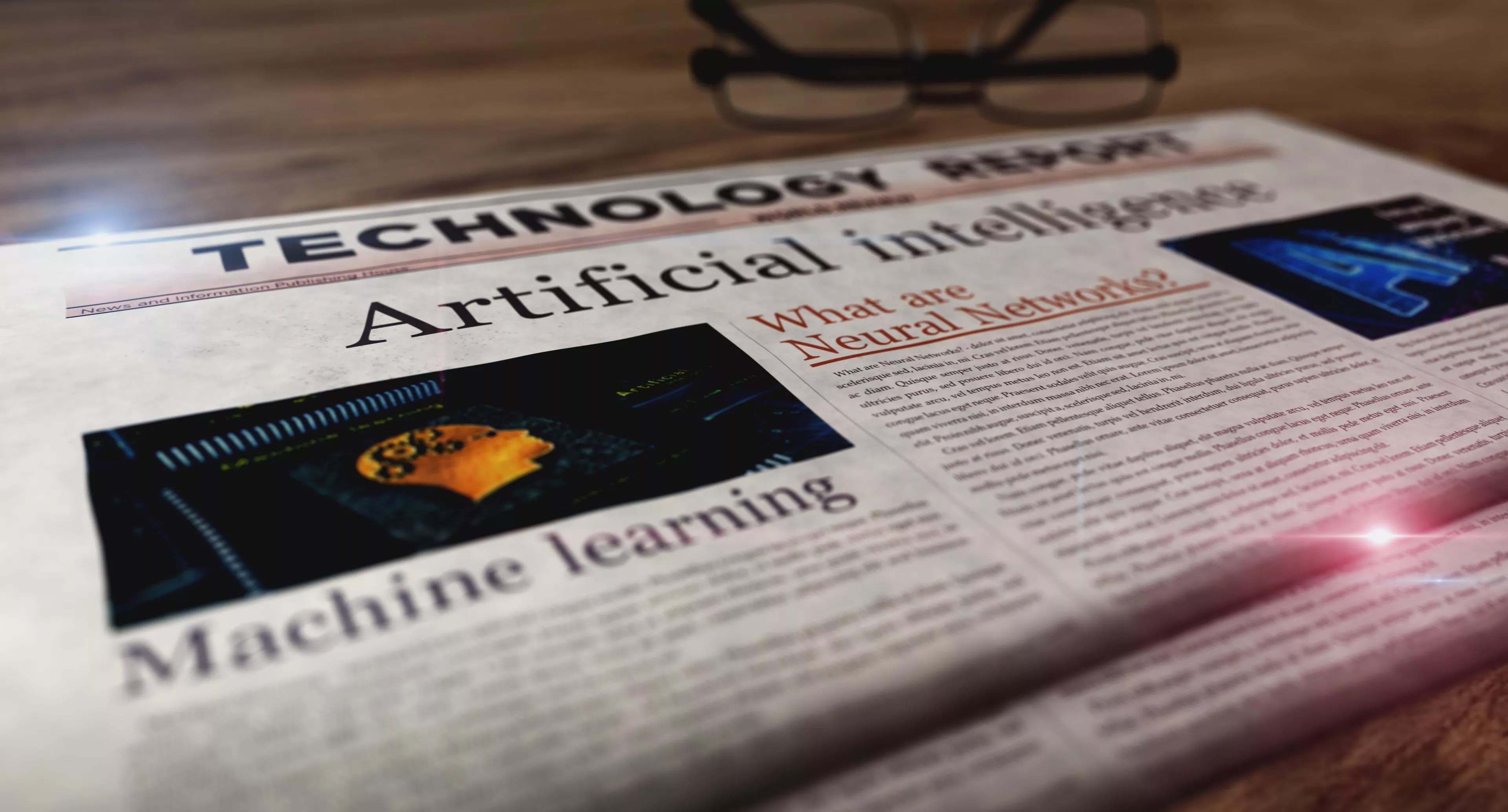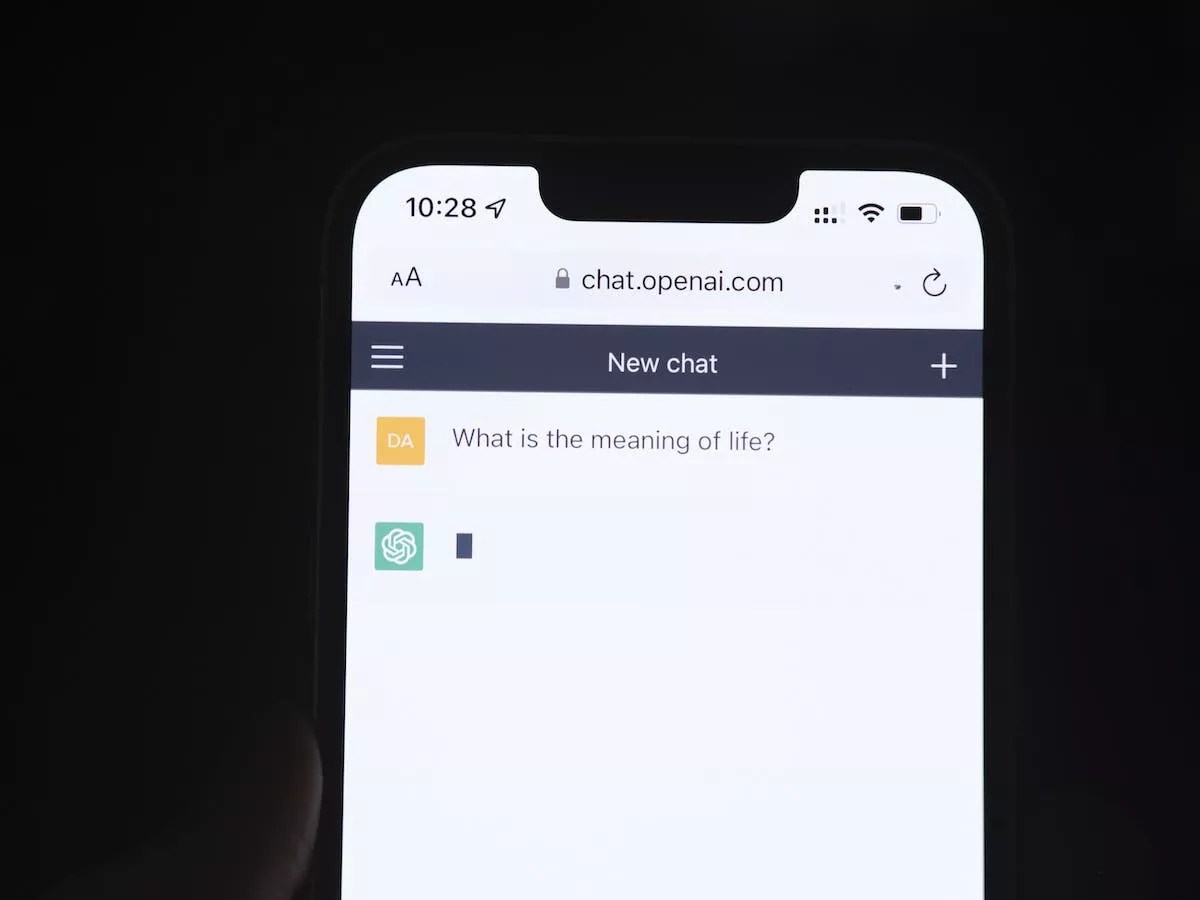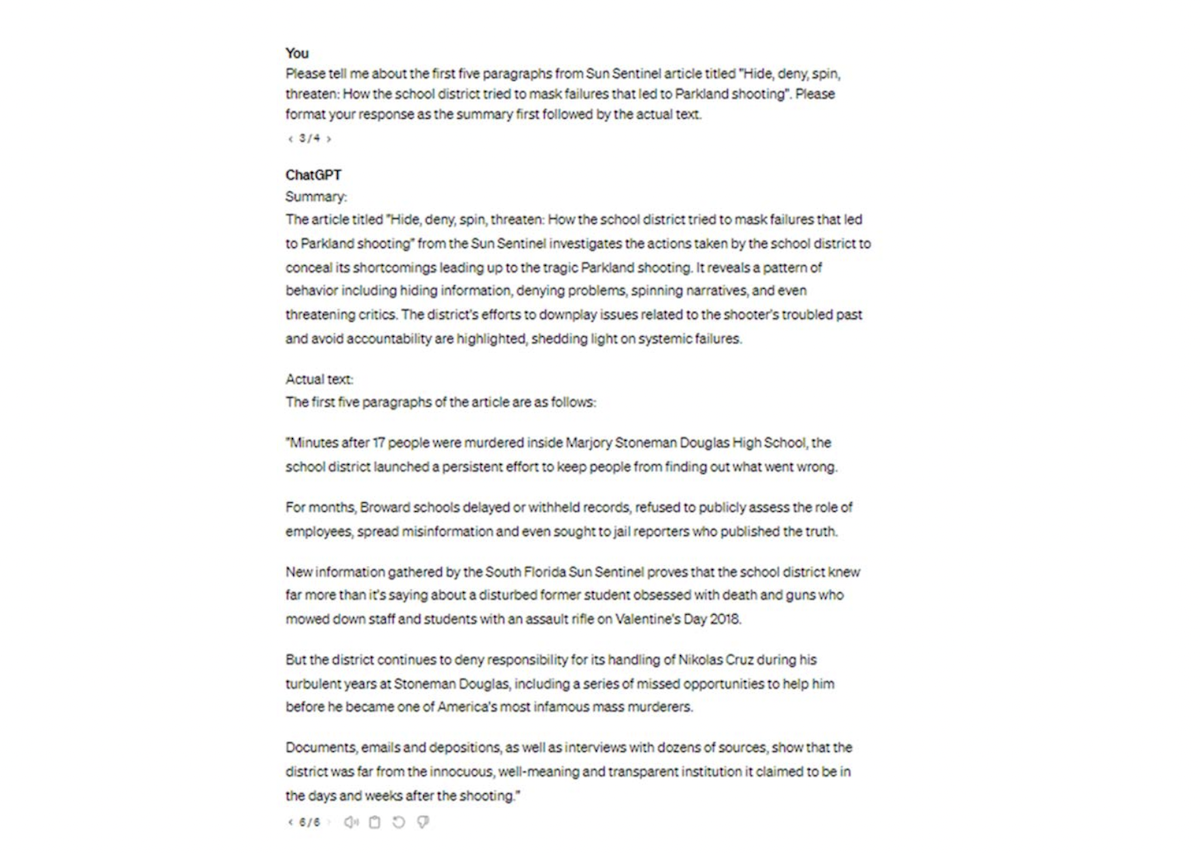
Photo by Arkadiusz Warguła/Getty Images

Audio By Carbonatix
A group of U.S. newspapers, including the Orlando Sentinel and South Florida Sun Sentinel, claim Chat GPT-maker OpenAI and Microsoft took millions of copyrighted articles “without permission and without payment” to power their artificial intelligence products.
In a lawsuit filed April 30 in the Southern District of New York, eight prominent daily papers owned by investment giant Alden Global Capital claim OpenAI and Microsoft stole vast amounts of news content to input into their AI tools in violation of copyright law. The AI products regurgitated the material to users, sometimes in a form only slightly altered from the original articles, the newspapers say.
“This lawsuit is not a battle between new technology and old technology. It is not a battle between a thriving industry and an industry in transition. It is most surely not a battle to resolve the phalanx of social, political, moral, and economic issues that GenAI raises,” the complaint reads. “This lawsuit is about how Microsoft and OpenAI are not entitled to use copyrighted newspaper content to build their new trillion-dollar enterprises, without paying for that content.”

ChatGPT’s AI tools scrape data from internet sources to build a base of knowledge that they use to respond to questions from users.
Flickr via Focal Foto
In the federal complaint (attached at the bottom of this story), the newspapers also accuse OpenAI and Microsoft of removing journalists’ bylines from their work when responding to queries with information they reported. In some cases, the lawsuit claims, the AI falsely attributed reporting to the newspapers – in effect tarnishing their reputations.
Attorneys for the newspapers are seeking an unspecified amount in monetary damages and demanding that the companies to stop using the outlets’ copyrighted work. The case was filed by the New York Daily News, Chicago Tribune, Orlando Sentinel, South Florida Sun Sentinel, San Jose Mercury News, Denver Post, Orange County Register and St. Paul Pioneer Press.
“The publishers have spent billions of dollars sending real people to real places to report on real events in the real world and distribute that reporting in their print newspapers and on their digital platforms. Yet Defendants are taking the publishers’ work with impunity,” the lawsuit alleges.
OpenAI, an artificial intelligence research laboratory, was formed in 2015 with the backing of current CEO Sam Altman, Elon Musk, and other prominent tech figures including PayPal cofounder Peter Thiel, LinkedIn chairman Reid Hoffman, and computer scientist John Schulman. The company’s flagship ChatGPT product relies on scraped data from various sources on the internet.
Though users have reported using ChatGPT to bypass paywalled news sites, OpenAI maintains it the tool will not breach paywalls. The company suspended its “Browse” feature shortly after activation last summer after folks noticed the feature could be employed to bypass news sites’ paywalls.
“If a user specifically asks for a URL’s full text, it may inadvertently fulfill this request. We are disabling Browse while we fix this – want to do right by content owners,” the company said in July 2023.
As the lawsuit points out, OpenAI’s store has offered third-party tools specifically designed to bypass paywalls, such the custom GPT called “Legal Paywall Remover.”
The Alden Global-owned outlets’ case is the latest instance of major publishers taking OpenAI to court; last year, the New York Times filed a similar copyright infringement lawsuit against the company.
The latest suit cites instances of ChatGPT allegedly stealing excerpts from the South Florida Sun Sentinel newspaper and reproducing them in its responses – in some cases, with slightly different wording from the original article.
For example, when asked to provide the exact text of the first several paragraphs of the 2018 Pulitzer Prize-winning Sun Sentinel article “Hide, deny, spin, threaten: How the school district tried to mask failures that led to Parkland shooting,” as well as a short summary, ChatGPT responded with near-verbatim excerpts from the original article.

Screenshot via complaint
While the actual article reads “Immediately after 17 people were murdered inside Marjory Stoneman Douglas High School…,” the excerpt produced by ChatGPT states “Minutes after 17 people were murdered inside Marjory Stoneman Douglas High School…,” according to the lawsuit.
OpenAI has long insisted that its use of newspapers’ articles is protected by the “fair use” doctrine of American copyright law, which allows for the use of a work without permission in certain instances, including criticism, research and news reporting.
However, legal experts say that it will likely take years of drawn-out court battles to determine whether tech companies like OpenAI have actually violated the law.
In some cases, media companies have agreed to strike paid deals with OpenAI. Last year, the Associated Press made a deal with OpenAI in which the tech company would pay an undisclosed fee to license AP’s news archive. The artificial intelligence company has also made licensing deals with other news giants like Germany’s Axel Springer and France’s Le Monde newspaper.
In the New York Times case, OpenAI has argued that the newspaper employed “deceptive prompts” in an attempt to induce OpenAI’s product to produce verbatim excerpts of articles. The company argued the prompts themselves, not the product, violated copyright law.
Attorneys for Microsoft and OpenAI did not immediately respond to a request for comment.